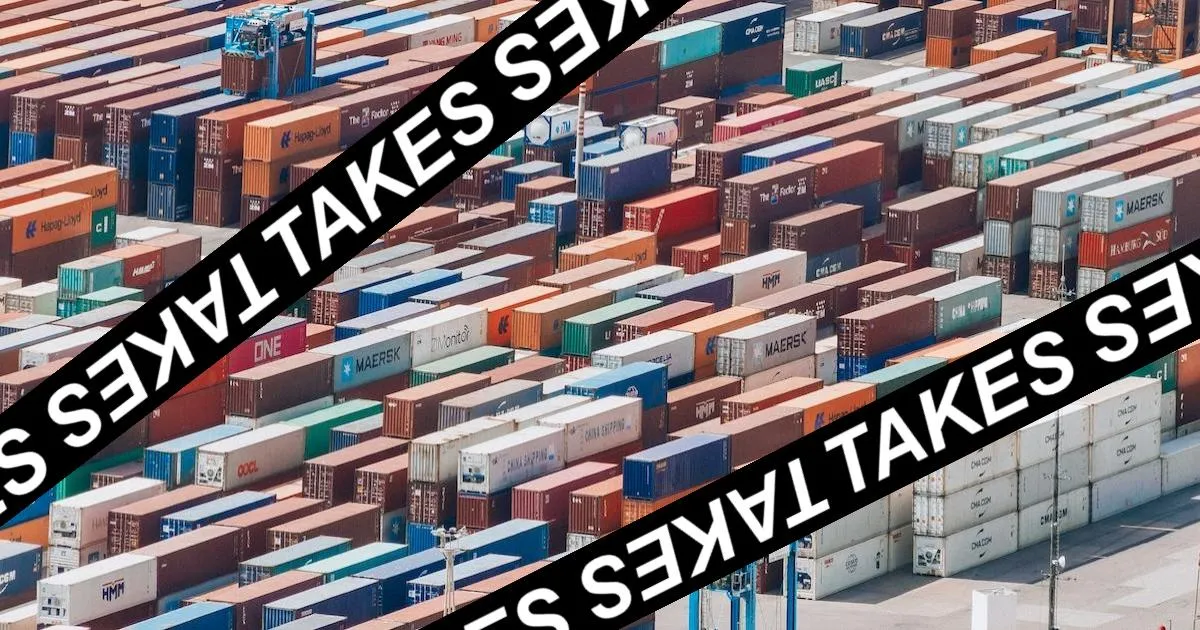The Unexpected Silver Lining of the U.S.-China Tariff War for Bitcoin Miners
Hey there, folks! Frank Corva here, your friendly neighborhood Bitcoin enthusiast and tech pundit. I know what you’re thinking: “Great, another article about the U.S.-China tariff war.” But buckle up, because this one’s a doozy!
Now, I’m not here to debate the merits or demerits of President Trump’s trade policies. We’ve all gotten our fair share of that on the interwebs. But what I do want to talk about is a little-known fact: these tariffs are actually good news for Bitcoin miners in the United States.
Why Tariffs Mean Business for Bitcoin Miners
Let me explain. Bitcoin mining is the process by which new Bitcoins are created and transactions are verified on the Bitcoin network. To do this, miners use specialized computer hardware called Application-Specific Integrated Circuits, or ASICs. These bad boys are designed specifically for mining Bitcoin, and they’re incredibly efficient at it.
The problem is, most ASICs are manufactured in China. And with the ongoing tariff war between the U.S. and China, it’s getting more expensive for American mining companies to import these crucial pieces of equipment. But here’s the kicker:
A Boon for Domestic Bitcoin Mining
This increased cost is actually a good thing for the Bitcoin mining industry in the U.S. Why, you ask? Well, for one, it creates a stronger incentive for American companies to invest in domestic ASIC manufacturing. This would not only reduce our reliance on imported hardware but also create new jobs and boost the economy.
Furthermore, the higher costs of importing ASICs from China could lead to a shift in the mining landscape. Smaller, more nimble mining operations may find it more feasible to enter the market, as larger companies with deeper pockets might be deterred by the increased costs. This could lead to a more decentralized mining network, which is a good thing for the overall health and security of the Bitcoin network.
The Global Impact
Now, I know what you’re thinking: “But Frank, what about the rest of the world?” Well, the impact on other countries will depend on their individual circumstances. For some, the tariffs could lead to a surge in domestic Bitcoin mining, similar to what we’re seeing in the U.S.
For others, particularly those with large mining operations, the increased costs could make it more difficult to compete. This could lead to a consolidation of mining power in the hands of a few larger players. However, it could also create opportunities for new players to enter the market and challenge the status quo.
Ultimately, the tariff war between the U.S. and China is a complex issue with far-reaching consequences. But for Bitcoin miners in the U.S., it could mean new opportunities and a stronger, more decentralized mining network. And isn’t that a silver lining worth celebrating?
Conclusion
So there you have it, folks! I hope you found this little deep dive into the intersection of Bitcoin mining and the U.S.-China tariff war both informative and entertaining. Remember, even in the midst of global trade tensions, there’s always a silver lining to be found. Until next time, happy mining!
- Bitcoin mining is the process of creating new Bitcoins and verifying transactions on the Bitcoin network.
- ASICs are specialized computer hardware used for Bitcoin mining.
- Most ASICs are manufactured in China.
- U.S. tariffs on Chinese imports make it more expensive for American mining companies to import ASICs.
- This increased cost could lead to a stronger incentive for domestic ASIC manufacturing in the U.S.
- The tariffs could also lead to a more decentralized mining network.
- The impact on other countries will depend on their individual circumstances.





